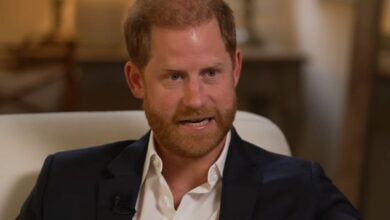‘Trauma expert’ Gabor Mate says he bitterly REGRETS controversial Prince Harry interview because of ‘demeaning, dismissive’ backlash he faced – saying ‘foofoo’ surrounding it took over his life and made him ‘lose himself’
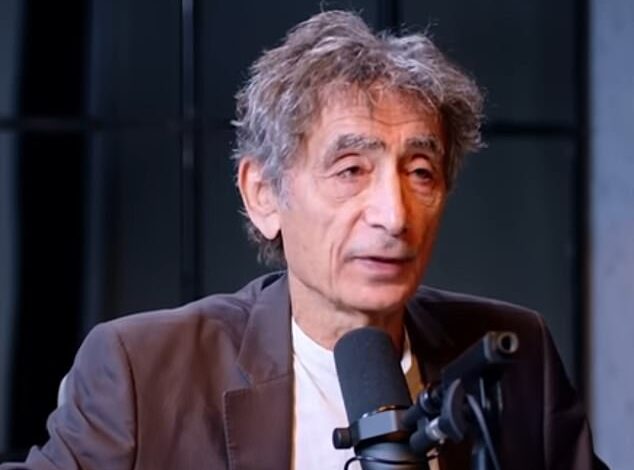
‘Trauma expert’ Gabor Maté has admitted that he regrets his controversial interview with Prince Harry because the ‘foofoo’ surrounding it took over his entire life and made him ‘lose himself.’
Back in March, the Duke of Sussex, 39, spoke with the the Hungarian-Canadian doctor, 79, about ‘living with loss and the importance of personal healing,’ while promoting his memoir Spare.
During their sit-down, which was live-streamed on the web and cost $33 to watch, Harry made a series of bombshell claims about growing up as a royal.
The conversation was fiercely scrutinized, especially after it was brought to light that Gabor had made a series of eyebrow-raising comments in the past – like comparing Hamas to the Jewish heroes of the Warsaw Ghetto Uprising against the Nazis, defending Palestinian rocket fire at Israeli civilians, and branding Israel’s government as terrorists.
He is also an outspoken supporter of decriminalizing drugs, and has used the Amazonian plant ayahuasca to treat patients suffering from mental illness.
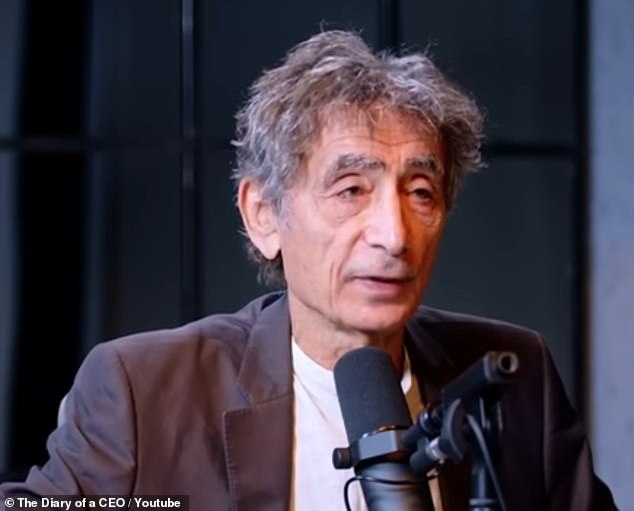
‘Trauma expert’ Gabor Maté has admitted that he regrets his controversial interview with Prince Harry because the ‘foofoo’ surrounding it took over his life and made him ‘lose himself’
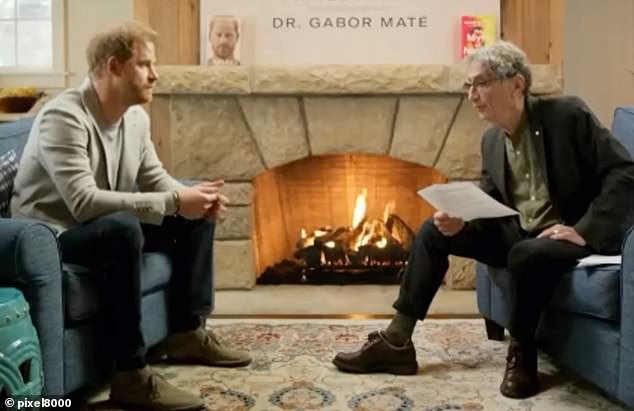
Back in March, the Duke of Sussex, 39, spoke with the the Hungarian-Canadian doctor, 79, about ‘living with loss and the importance of personal healing,’ while promoting his memoir
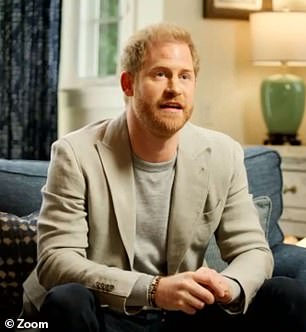
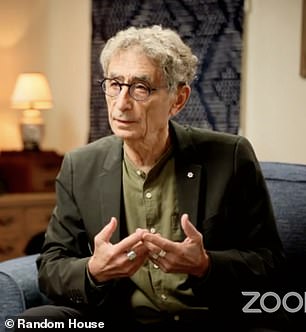
The conversation was fiercely scrutinized, especially after it was brought to light that Gabor had made a series of eyebrow-raising comments in the past
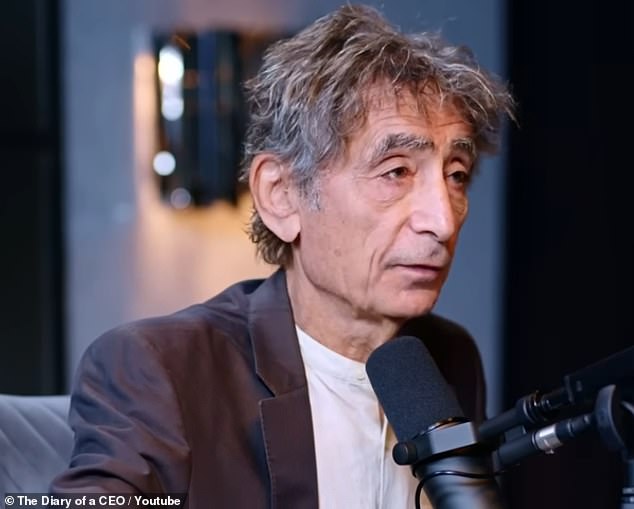
Now, the author and physician has addressed the public’s ‘demeaning, dismissive, and distorted’ reaction to his chat with Harry, while revealing that it left him in a really ‘dark place’
Now, the author and physician has addressed the public’s ‘demeaning, dismissive, and distorted’ reaction to his chat with Harry, while revealing that it left him in a really ‘dark place.’
‘There was an incredible social media reaction to it, which was, for the most part, so negative and so demeaning and so dismissive and so distorted,’ he said during a recent appearance on Steven Bartlett‘s The Diary of a CEO podcast.
‘I barely even know how to talk about it. I thought by this age I would know better, but you know what, it really got to me.’
Gabor said the backlash left him in a ‘really negative state of mind’ and feeling like he ‘lost himself’ – leading to him eventually reaching out to a psychiatrist for help.
‘I was in a dark place, I’m a human being like the rest,’ he continued. ‘It’s so difficult to ask for help but I did.’
He accused the media of twisting his words and recalled them calling him things like ‘stern, overbearing, and a merchant of pain.’
After speaking to a psychiatrist, however, Gabor said he later realized that his problems didn’t have to do with the criticism, but rather, stemmed from an ‘old unresolved wound’ from his past.
According to Gabor, he had reservations about talking to Harry from the start, since he was uncomfortable with the idea of making people pay to watch it.
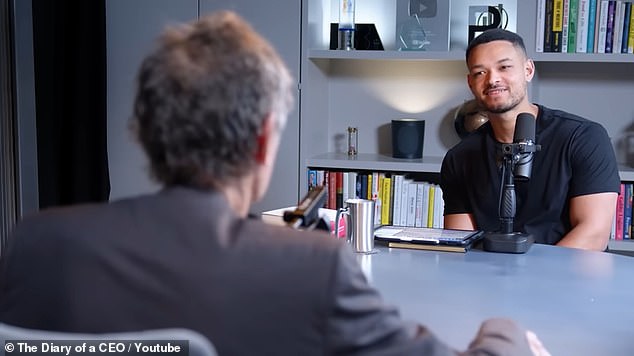
Gabor said the backlash put him a ‘really negative state of mind’ and resulted in him feeling like he ‘lost himself’ during an appearance on Steven Bartlett’s The Diary of a CEO podcast
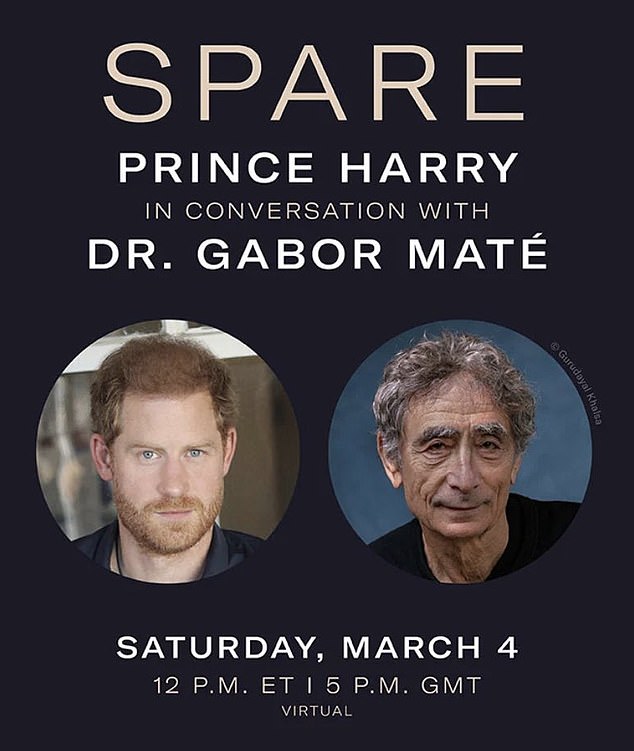
The conversation was live-streamed on the web and tickets were priced at $33. People who watched it received a copy of Harry’s book, Spare
‘I had a gut feeling all along that I shouldn’t agree the way they set it up. Because the way it was set up, to watch it, people had to buy a copy of Harry’s book,’ he explained.
‘I thought, “This is not fair, four million people have already bought the book. Why can’t they watch this interview?” They had to buy another copy.
‘I believed this should be a free public service from two people who are having a very interesting conversation.
‘But out of sheer opportunism I agreed to it. I didn’t follow my gut feeling. I agreed to something that I didn’t really like.
‘Not that I didn’t like the idea of talking with him, I didn’t like the idea of putting myself behind a pay wall. I lost myself just in agreeing to do it.’
Despite his regrets about the interview, Gabor insisted that he ‘doesn’t care’ what the public thinks of him anymore.
But he said he wants people to ‘see him’ for who he is and ‘not some distorted version.’
‘I don’t care if people agree with me or if they refute my ideas, but I want them to see me and what I’m actually saying, not some distorted version created by their own minds,’ he concluded.
‘So what if someone says [something bad about me]. I don’t live in the press. I don’t live in someone else’s mind. Here I am. Let them think and say what they want.’
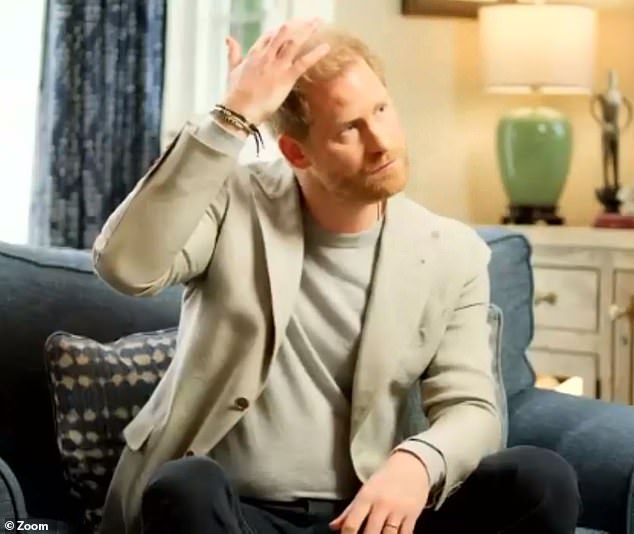
Gabor said that after the interview, he had to reach out to a psychiatrist for help, adding, ‘I was in a dark place, I’m a human being like the rest.’ Harry is seen during their chat
Gabor has more than two decades of experience working with people suffering from addiction and mental illness – and he fiercely believes that all of the problems we face as adults stem from trauma we endured as children.
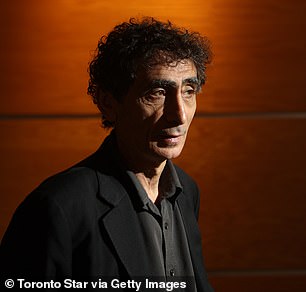
Gabor has been scrutinized for comparing Hamas to the Jewish heroes of the Warsaw Ghetto Uprising against the Nazis, defending Palestinian rocket fire at Israeli civilians, and branding Israel’s government as terrorists
He himself had a traumatic upbringing. He was born in Nazi-occupied Budapest in 1944, and when he was five months old his maternal grandparents were among the Jews murdered in Auschwitz. He was then taken from his mother and hidden with an aunt until the war ended.
He is an outspoken supporter of decriminalizing drugs, and has used the Amazonian plant ayahuasca to treat patients suffering from mental illness.
The psychedelic plant, which is taken as a brewed drink, causes people to experience hallucinations and other side effects, including vomiting – something Prince Harry has admitted to using to manage his ‘trauma and pain.’
It remains illegal in the US, UK, and Canada, and in 2011, Canadian officials threatened to arrest Dr Maté if he didn’t stop using the drug to treat his patients.
On top of his shocking anti-Zionist comments, Gabor has also contributed to a pro-Kremlin website that defends brutal regimes around the world and has spoken warmly of the spittle-flecked Pink Floyd star and alleged ‘Putin apologist’ Roger Waters.


